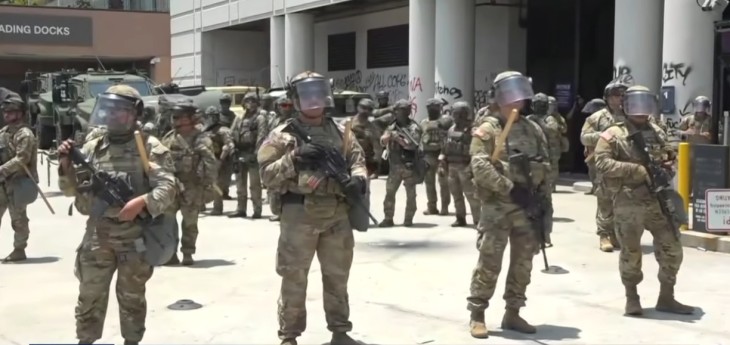A Los Angeles Police Department review of its discipline system prompted by the Christopher Dorner rampage found widespread concerns among officers and civilians that the agency discriminates based on gender, ethnicity and rank, according to a report reviewed by the Los Angeles Times.
Focus group sessions held with more than 500 department employees found that many of those interviewed believed internal investigations were unfair and that punishments were subjective, the document said, according to The Times.
Among the complaints were that the department overlooks misconduct by high-ranking officials, that discipline is influenced by public and media pressures and that nepotism infects the disciplinary process.
The report, however, also contained data that raised doubts about some of those perceptions of bias. Statistics compiled by the LAPD show that the ethnic, gender and rank breakdown of officers sent to disciplinary panels for suspensions or termination roughly matches the demographics of the LAPD as a whole, The Times reported.
White officers, for example, make up 36 percent of the department, and 35 percent of officers sent to a Board of Rights disciplinary hearing for a lengthy suspension or termination. Black officers account for 12 percent of officers and 14 percent of those sent to such hearings.
Los Angeles police Chief Charlie Beck ordered the report more than 20 months ago after Dorner, an ex-LAPD officer, went on a shooting rampage across Southern California, killing police officers as well as the daughter of an LAPD captain and her boyfriend. He claimed he was seeking retribution after being unfairly fired and that he had been the victim of racial discrimination within the department.
The civilian Police Commission is expected to review the report at a meeting next week.
LAPD officials said in the report that they were planning to make a significant change: returning to using specific guidelines to determine what punishment an officer deserves. The move is intended to help ensure similar punishments are handed out for similar types of misconduct, The Times reported.

























